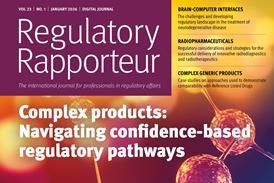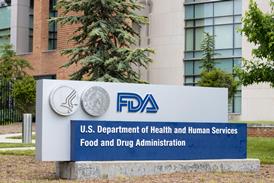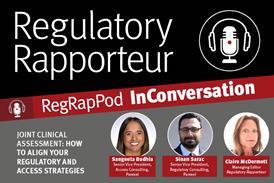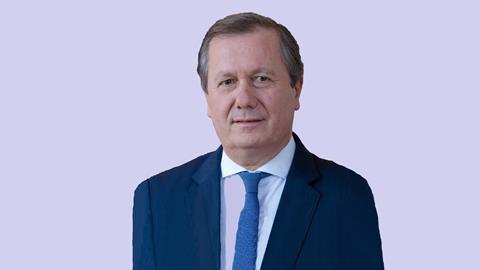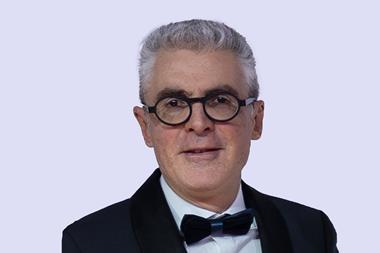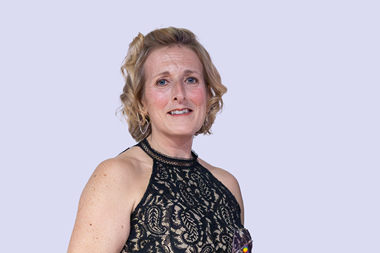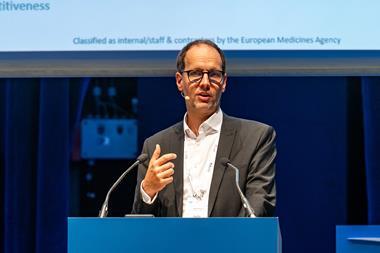Rui Santos Ivo, President of the Portuguese National Authority of Medicines and Health Products, I.P (INFARMED) and recently elected new Chair of the European Medicines Agency (EMA) Management Board, was awarded the prestigious ‘Lifetime Achievement’ Award at the 2024 TOPRA Awards for Regulatory Excellence.
In this interview, Rui discusses his career journey, his proudest professional achievements, and his thoughts on how agencies can overcome challenges in achieving global health equity.
What first led you to a career in regulatory affairs?

My career path was driven by a desire to contribute to healthcare and public health. I believe that the roots of my road to regulatory affairs come from my early days as a pharmacy student and my involvement in international activities. Gaining a broader perspective pushed me to recognise the crucial role those regulatory frameworks play in ensuring the wider role medicines have in the context of health systems, not only on a national scale but also worldwide. This realisation inspired me to dedicate myself to this field, knowing that strong regulatory systems have a global impact on improving public health and access to medical innovations.
Can you tell us a bit about your career journey?
My journey began in hospital pharmacy, when I joined Hospital Egas Moniz in Lisbon, Portgual in 1987, following my internship in a community pharmacy. I identify myself primarily as a hospital pharmacist — it’s my foundation, my core.
However, my professional path led me to seek a broader perspective, and transitioning into the regulatory field was a natural step. In May 1993 I joined INFARMED, embracing the challenge of serving the public on a large scale through regulation. This opportunity marked the beginning of a career that combines my academic background with the expertise I gained at European and international levels.
Since then, my trajectory has been predominantly in regulation, both at national and European levels, ensuring access to safe, effective, and high-quality medicines and health products. Alongside my work, I’m also an Invited Assistant Professor at the Faculty of Pharmacy of the University of Lisbon, a position I’ve held since 2009.
Over the years, I’ve actively contributed to strengthening regulatory frameworks, fostering innovation, and enhancing international cooperation in health regulation. As President of INFARMED, my mission remains to uphold the highest standards of public health, ensuring that regulatory policies serve the best interests of citizens, healthcare professionals and the pharmaceutical sector.
What would you say is your proudest career achievement to date?
Throughout my career, I’ve been fortunate to contribute to various initiatives that have strengthened the regulatory environment in Portugal and beyond. However, one of my proudest achievements has been leading INFARMED through significant advancements in regulatory science, particularly in ensuring the timely access of safe and effective medicines to Portuguese citizens. Playing a key role in reinforcing Portugal’s presence in European and international regulatory networks has been immensely rewarding. Seeing the impact of these efforts on public health and patient care is truly fulfilling, and I remain committed to furthering this mission in the years to come.
Undoubtedly the greatest challenge I’ve faced was responding to the COVID-19 pandemic. In addition, ensuring that we continue to provide equitable access to innovative and sustainable medicines, while managing rising costs, remains a constant priority.
Looking ahead, the focus will be on strengthening innovation in regulation, preparing INFARMED for the challenges of personalised medicine, healthcare digitalisation, and gene and cell therapies.
The various European legislative updates, whether revisions of existing regulations or new frameworks addressing emerging realities in medicines and medical devices, and their implementation at the national level, will present additional challenges, requiring a high degree of rigour from the regulator.
What are the current main challenges for regulatory professionals and how has this changed during your career?
The complexity of medical innovation and the rapid pace of technological advances present ongoing challenges. Regulatory professionals are increasingly required to manage the evaluation of innovative health products, including advanced therapies, novel pharmaceuticals and next-generation medical devices. These products often incorporate cutting-edge technologies such as artificial intelligence and digital monitoring tools, demanding updated regulatory frameworks to ensure both safety and effectiveness without hindering innovation. Digital transformation has also impacted how health products are developed, tested and monitored, with real-time data and digital tools becoming integral to the regulatory process.
Moreover, the COVID-19 pandemic highlighted critical weaknesses in the global supply chain, particularly regarding the availability and distribution of essential medicines and devices, which underscores the need for more resilient logistics. In this context, the importance of regulatory harmonisation across Europe has become increasingly evident.
‘It’s essential to strengthen international regulatory frameworks, promote mutual recognition agreements and leverage digital tools to improve efficiency and transparency in regulatory processes.’
A streamlined regulatory framework can enable faster access to innovation and enhance accessibility and availability of medicines. Over time, the regulatory focus has expanded beyond safety and efficacy to include these broader challenges, aiming to promote equitable access, sustainability, cross-border cooperation and competitiveness, and social needs.
What do you think the next steps are in harmonising regulations globally?
I firmly believe that global harmonisation of regulations requires reinforced collaboration between regulatory agencies, industry stakeholders and international organisations. By enhancing communication, sharing best practices and aligning regulatory standards, we can minimise duplication of efforts and facilitate faster access to innovative treatments worldwide, reinforcing public health.
Moving forward, it’s essential to strengthen international regulatory frameworks, promote mutual recognition agreements and leverage digital tools to improve efficiency and transparency in regulatory processes. The European Medicines Agency (EMA), the US Food and Drug Administration (FDA), the International Coalition of Medicines Regulatory Authorities (ICMRA) and the World Health Organization (WHO) will be pivotal in fostering consistency and ensuring patient safety across different regions.
At INFARMED, we remain committed to actively contributing to these initiatives, supporting regulatory convergence while maintaining the highest standards of quality, safety and efficacy in healthcare products.
The COVID-19 pandemic showed the importance of global cooperation and, although the complexity and uncertainty of our world is a reality, pursuing harmonisation steps remains a crucial challenge that we must support for everyone’s benefit.
What do you see are the challenges in achieving global health equity and what are the next steps in overcoming them?
Health equity remains a pressing challenge, shaped by significant disparities in resources, healthcare infrastructure and regulatory capacity across regions. In many low- and middle-income countries, access to essential medicines, vaccines and medical devices is still limited, often due to supply chain disruptions, regulatory delays and inadequate funding for healthcare systems.
Achieving global health equity requires a multifaceted approach that includes strengthening local regulatory systems, investing in capacity-building initiatives and fostering international collaboration to ensure that all populations can benefit from medical advancements. An important part of this effort is adopting a ‘One Health’ approach, which recognises the interconnectedness of human, animal and environmental health. Zoonotic diseases, such as COVID-19, have demonstrated how public health risks can emerge from the interaction between humans and their environment.
Addressing global health equity therefore involves not only improving access to healthcare, but also implementing policies that mitigate environmental risks, enhance food safety and promote sustainable development. The next steps involve creating more resilient health systems that integrate human, animal and environmental health considerations. This includes global initiatives to monitor and respond to emerging health threats, to promote regulatory harmonisation and to support sustainable innovation in health products. By incorporating the ‘One Health’ framework into regulatory policies, countries can better prepare for future health challenges, reduce inequities and promote healthier, more sustainable societies worldwide.
How do you think agencies can collaborate better in the future?
Agencies can enhance collaboration through data sharing, joint assessments, and mutual recognition agreements and procedures, like those under the WHO Listed Authority framework. Establishing networks and working groups focused on common goals can foster regulatory convergence and improve efficiency, reduce redundancies and facilitate a more unified global regulatory ecosystem. This ensures an efficient use of limited global regulatory resources by facilitating reliance on the work and decisions of different regulatory authorities.
‘The regulatory profession will continue to evolve with advancements in technology and science… professionals will need to adapt to emerging fields such as precision medicine and digital therapeutics’
Do you think agencies need to integrate patient voice more into regulatory decisions? If so, how?
Absolutely. Patients provide unique insights that can significantly enhance decision-making processes by bringing forward their real-world experiences, needs and preferences. It’s essential for regulatory agencies to create structured and continuous opportunities for patient engagement, such as advisory panels, focus groups, public consultations and participatory research. By integrating these perspectives, agencies can ensure that regulatory decisions are more patient-centred and reflective of the realities faced by those directly impacted.
At INFARMED, the INCLUIR project exemplifies this approach. This initiative was developed to strengthen and structure the relationship between INFARMED and people with illnesses, as well as the organisations that represent them. Its objectives include fostering closer, regular collaboration and enabling patient organisations to develop more informed positions on regulatory processes. At the same time, this helps INFARMED by incorporating the perspectives of patients, caregivers and families into its activities and decision-making. The project also aims to involve patients more actively in health technology assessment processes, with the goal of progressively expanding their role to other regulatory procedures. Initiatives like INCLUIR highlight the growing recognition of the importance of the patient voice in ensuring that regulatory frameworks remain responsive, inclusive and effective in addressing public health needs.
How do you see the profession changing in the next ten years?
The regulatory profession will continue to evolve with advancements in technology and science. We are likely to see greater integration of data analytics, AI-driven decision support systems, and real-world evidence in regulatory processes.
Additionally, regulatory professionals will need to adapt to emerging fields such as precision medicine and digital therapeutics, necessitating ongoing education and skills development.
How can we inspire the regulatory affairs professionals of the future?
We can inspire and attract future regulatory affairs professionals by highlighting the critical role this field plays in safeguarding and advancing public health. It’s essential to promote awareness of how regulatory frameworks directly impact patient safety, access to innovative treatments and overall healthcare quality.
To build and retain a highly qualified workforce, we must create opportunities for mentorship, offer hands-on involvement in meaningful projects, and recognise excellence and leadership within the profession.


